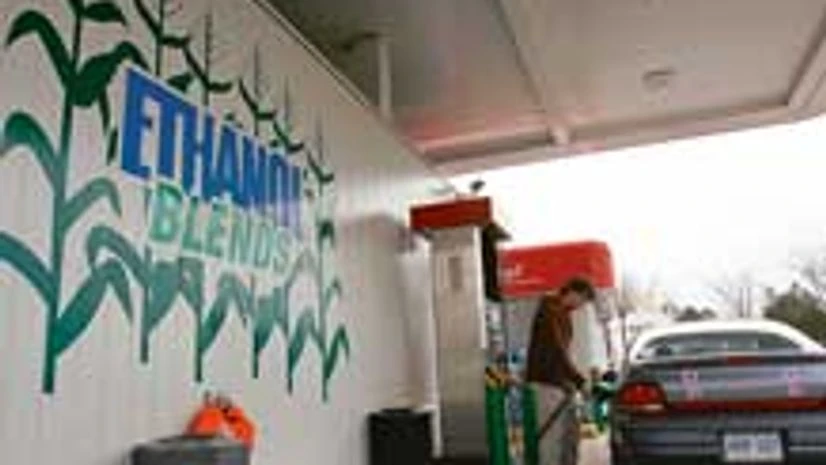Concerned over poor supply of ethanol by sugar mills, the department of chemicals and petrochemicals has convened a meeting of chief secretaries of sugar producing states.
Scheduled to be held on Monday, the meeting will also be attended by stakeholders of the sugar, ethanol, chemical and liquor industries. According to sources, the agenda for this meeting is very important for all stakeholders.
"The government has convened a meeting of all stakeholders of all three industries concerned on Monday to discuss how ethanol supply can be improved to achieve its 10 per cent blending target with petrol," said a senior industry official, who has also been invited to attend the meeting to represent one segment of the sugar industry.
More From This Section
According to trade sources, sugar mills offered only 1,400 million litres. The OMCs finalised a tender of less than 920 million litres, which if blended with petrol fully will constitute less than 3.5 per cent, against the government target of 10 per cent this year.
"The government has asked us to increase supply to 10 per cent from 3.5 per cent, which would not be possible straightaway. It will happen step-by-step," said Abinash Verma, director-general of Indian Sugar Mills Association (ISMA).
The installed ethanol manufacturing capacity in India stands at 2,240 million litres with an average annual operating capacity of 80 per cent. So, the industry is required to invest heavily in building capacity, followed by storage and transportation facilities. This would take time, said Verma.
Meanwhile, to encourage sugar mills to increase supply, the government had raised ethanol procuring prices to Rs 48.5 - 49.5 a litre. Earlier this month, the government also exempted central value added tax to increase suppliers' realisation by at least Rs 3 a litre.
Despite all these measures, sugar mills are keen to supply ethanol to liquor and chemical manufacturers. This might be because of the higher price they get. "OMCs face competition from liquor and chemical manufacturers, as the two sectors consume 70-75 per cent of ENA production in India. Since, liquor manufacturers pay higher than the actual realisation from ethanol, sugar mills supply extra neutral alcohol (ENA) to them. Apart from that, the chemical industry also consumes immensely. So, it is important for the government to allow duty-free import of ENA for chemical manufacturers and reduce import duty on liquor," said V N Raina, director-general, All India Distillers' Association.
The chemical industry has urged the government not to subsidise sugar mills for ethanol, as supply of ENA for chemical production would be insufficient.
Sugar mills face another problem. Despite ethanol procurement being a subject of the central government, state governments have levied several taxes, making inter-state transportation cumbersome.

)
